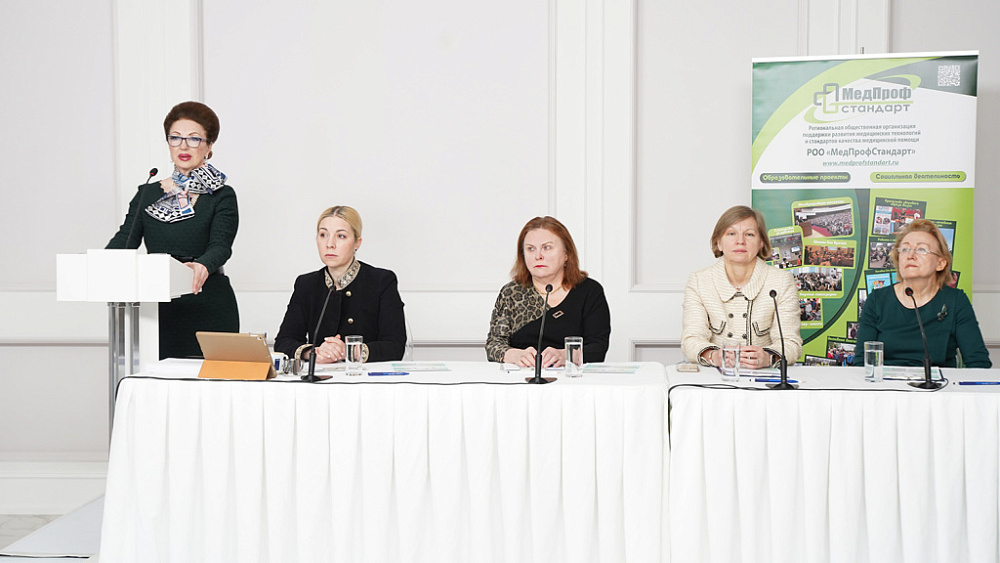
Expert view: how to prevent the development of infertility

Women’s reproductive health is a delicate but extremely important topic that continues to be sensitive on the agenda. At the beginning of February, the research-to-practice conference titled “Anti-relapsing Therapy in Endocrine Gynecology. Continuity of Outpatient and Inpatient Care” was held in Moscow chaired by external Chief Gynecologist of the Ministry of Health of the Russian Federation, Academician Leila Adamyan. The leading gynecologists discussed modern methods of prevention and treatment of gynecological disorders available for Russian patients.
Gynecological disorders accompany most women throughout their lives. Having various origins, from infections and hormone imbalances to surgical interventions, they can greatly influence the quality of life of a woman, as well as the health of her reproductive system. Besides, gynecological disorders in some cases cause complications which require special attention of specialists and combination therapy.
Adhesive processes, or fibrosis, arise as a result of a large-scale sclerosis on the background of chronic inflammations or pelvic diseases. Adhesions can provoke the development of infertility, intestinal obstruction, menstrual disorders, ectopic pregnancy and chronic pelvic pain. This occurs because adhesions cause the organs to shift and become fixed in an non-physiologic position, and their blood supply is impaired.
One of the most frequent causes of adhesions is endometriosis. The disease is still not fully studied, and the exact causes are unknown, but we can say that endometriosis is a multifactorial process, in which there is a proliferation of the inner layer of the uterine wall, the endometrium, outside this layer.
And in 60% of cases external genital endometriosis causes adhesive process in the pelvis[2]. The formation of adhesions in endometriosis can occur as a result of a local ineffective inflammatory reaction; Maria Yarmolinskaya added that it is fibrosis that can increase the main symptoms of endometriosis — pain and infertility.
The expert concluded that in the combination therapy of endometriosis and its consequences, it is recommended to use drugs with an anti-adhesion mechanism of action, which includes bovhyaluronidaze azoximer (Longidaza®). The drug regulates the synthesis of inflammatory mediators and can also reduce the fibrous tissue formed without damaging normal connective tissue.
Experts also paid attention to the formation of adhesions in the postoperative period with uterine leiomyoma. Leiomyoma, a benign tumor, affects up to 40–70% of women of reproductive age[3]. The disease requires surgical intervention, which often results in the pathological sclerosis.
Specialists stressed that prevention and rehabilitation are the fundamentals of the treatment process. Gynecological disorders usually enter their acute or chronic phases because of the wrong treatment, and the consequences in this case can be very serious. Women should be aware of the importance of regular preventive appointments and the possibility of undergoing a complete examination of the reproductive system. Longidaza® stands against the formation of adhesions in pelvic organs during gynecological disorders and in the postoperative period and also helps to reduce the frequency of relapses.
1 M.I. Yarmolinskaya, М.S. Florova Treatment potential of dienogest 2 mg in patients with external genital endometriosis. Reproductive Problems, 1, 2017.
2 Somigliana E, Vigano P, Benaglia L, Busnelli A, Vercellini P, Fedele L. Adhesion Prevention in Endometriosis: A Neglected Critical Challenge. Journal of Minimally Invasive Gynecology. 2012
3 Adyamyan L.V., 2015, Krasnopolsky V.I. et al. 2018, Devkare V., Gothwal M., 2021


